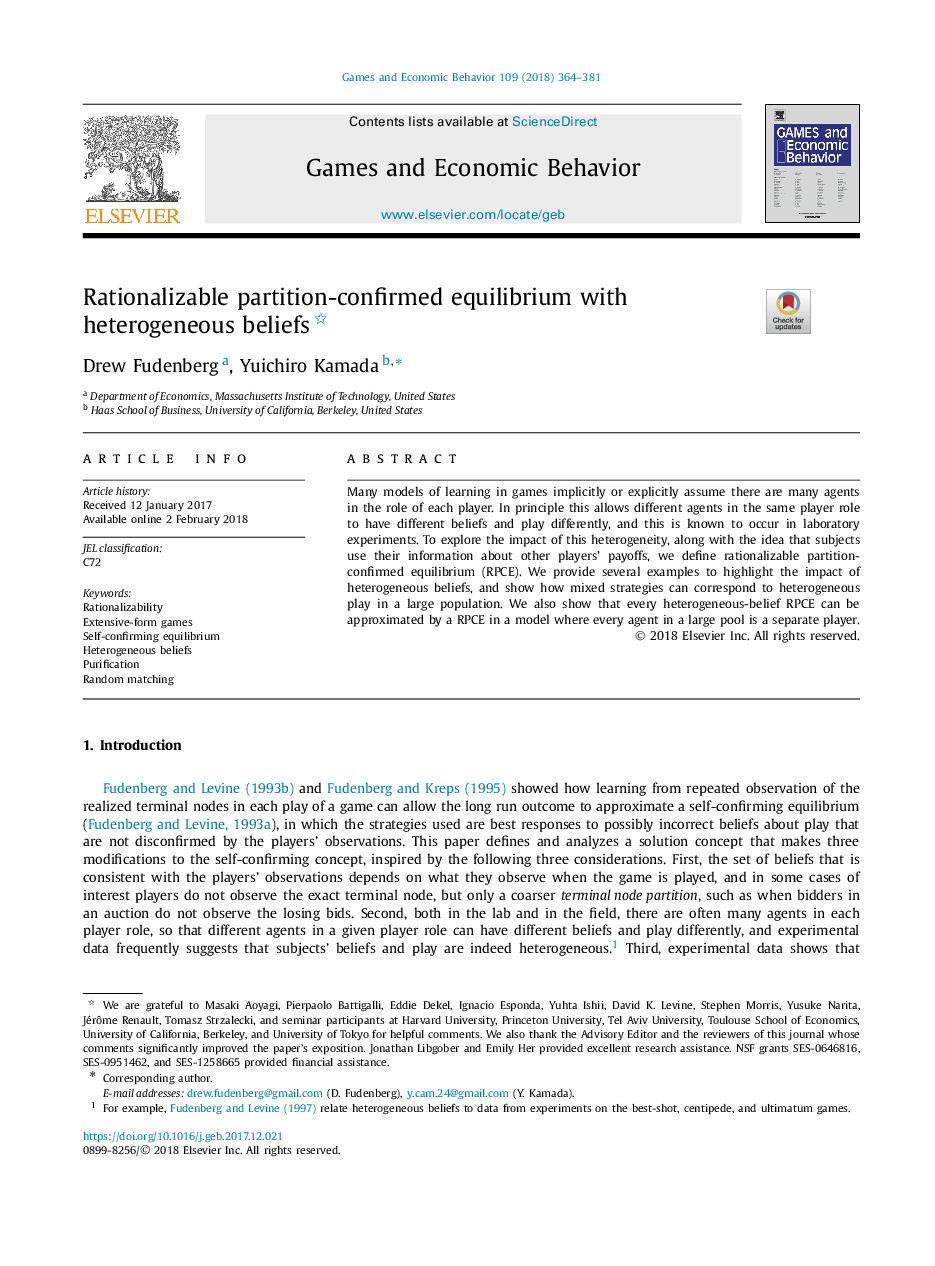| Article ID | Journal | Published Year | Pages | File Type |
|---|---|---|---|---|
| 7352919 | Games and Economic Behavior | 2018 | 18 Pages |
Abstract
Many models of learning in games implicitly or explicitly assume there are many agents in the role of each player. In principle this allows different agents in the same player role to have different beliefs and play differently, and this is known to occur in laboratory experiments. To explore the impact of this heterogeneity, along with the idea that subjects use their information about other players' payoffs, we define rationalizable partition-confirmed equilibrium (RPCE). We provide several examples to highlight the impact of heterogeneous beliefs, and show how mixed strategies can correspond to heterogeneous play in a large population. We also show that every heterogeneous-belief RPCE can be approximated by a RPCE in a model where every agent in a large pool is a separate player.
Keywords
Related Topics
Social Sciences and Humanities
Economics, Econometrics and Finance
Economics and Econometrics
Authors
Drew Fudenberg, Yuichiro Kamada,
